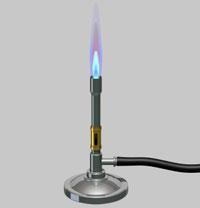Something that remains the same between the control group and the experimental group
Constant
This is the sentence that I told you to memorize to convert units.
King Henry Died By Drinking Chocolate Milk
This is the measuring system that we use in the science classroom. It’s based on units of 10.
Metric
Jill wonders which deodorant works the best (Degree or Dove).
According to the scientific method, this is the next step that she should take to answer her question.
gather information
or research
Scientists use the data from an experiment to evaluate the hypothesis and to draw one of these.
A conclusion
This is the amount of space an object occupies.
Volume
This is the answer that you would come up with if you ever had to convert 123 cm to m.
1.23 m
This is the abbreviation for milligram
mg
This is the definition for a hypothesis.
An Educated Guess
This is what we call the information gathered during an experiment.
Data
This term describes the interval between two events.
time
0.023 DL converted to mL
230 mL
This measurement
3.5 ml
These are the two groups every experiment should include?
Experimental group
Control group
The name of this safety symbol.

chemical safety
A piece of lab equipment that is used to measure the volume of liquids
Graduated cylinder
34.55 g to dg
345.5 dg
What is the volume of this marble?
1.2 cm3
An alternative to using the scientific method to answer a question
CER Method
This piece of lab equipment

bunsen burner
This variable changes in response to what was changed 1st in the experiment.
Dependent Variable
This is how many meters there are in 16 kilometers.
16000 meters
The number of variables that an experiment can have
one
These are the 7 steps of the scientific method; in order.
Research or Gather information
Form a hypothesis
Experiment
Analyze Data
Conclusion
Repeat
A beaker and its contents has a mass of 2 kg. The beaker alone has a mass of 200 g. What is the mass of the beaker’s contents?
1.8 kg or 1800 g